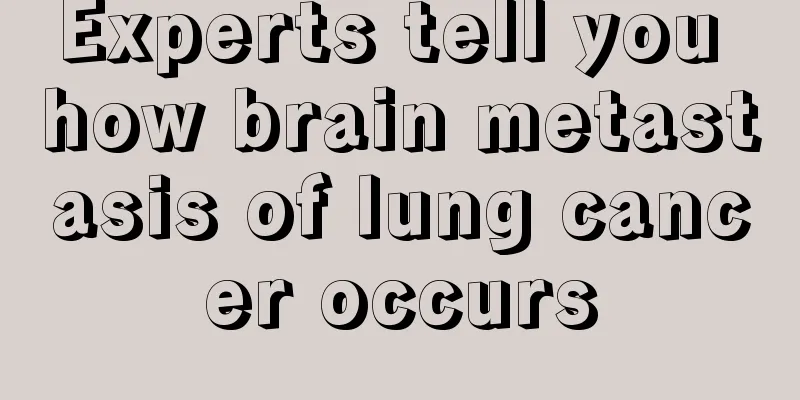What are the symptoms of cerebral hemorrhage?

|
Bleeding of the brain is also called cerebral hemorrhage in medicine. We often hear that someone has suffered a cerebral hemorrhage. The onset of cerebral hemorrhage is very rapid and the treatment time is very short. If rescue is not timely, it will be life-threatening. The sequelae of cerebral hemorrhage treatment are generally large, causing great pain to the patient. The recovery period is relatively long, and it is easy to have a secondary attack. So, are there any symptoms before the onset of cerebral hemorrhage? How can we avoid the occurrence of cerebral hemorrhage? Cerebral hemorrhage is a highly prevalent and easily fatal disease, and the three hours after its occurrence are the "golden three hours". Within these three hours, if cerebral hemorrhage can be discovered in time and medical treatment is sought promptly, it will determine whether the patient can be rescued and will also affect his recovery after rescue. So, what are the signs and symptoms of cerebral hemorrhage, and how to avoid cerebral hemorrhage? If you experience any of the following four symptoms of cerebral hemorrhage, it is best to go to the hospital immediately! Methods/Steps 1. Headache Headache is the most obvious symptom of cerebral hemorrhage. When a patient suffers a cerebral hemorrhage, the blood will stimulate the pain nerves in the meninges and brain, and more than 80% of people will experience severe headaches. Its characteristic is that the headache occurs on the affected side at first, and as the intracranial pressure increases and blood flows, the whole headache gradually appears. 2. Hemiplegia Hemiplegia refers to movement disorders in the upper and lower limbs on one side or the tongue and facial muscles on the same side. This is a very common symptom of cerebrovascular disease. No matter which side of the brain is lesioned, it may cause hemiplegia. The symptoms vary in severity and are divided into complete paralysis and incomplete paralysis. 3. Vomiting Vomiting is also a common symptom of cerebral hemorrhage, usually projectile vomiting, with a probability of occurrence as high as 80%. When a cerebral hemorrhage occurs, pressure within the skull rises and vomiting and headaches may become severe. If the vomitus is brown, it may be accompanied by upper gastrointestinal bleeding, which is an indication of a high-risk condition. 4. Impairment of consciousness Because the brain is severely damaged, impaired consciousness is also a common symptom of cerebral hemorrhage. Approximately 60% to 80% of patients with cerebral hemorrhage experience impaired consciousness. Except for patients with milder cerebral hemorrhage who are conscious, patients with moderate or severe cerebral hemorrhage will have serious impaired consciousness, and some may even go into a coma. |
<<: Questions and answers about teeth grinding symptoms
>>: What are the symptoms of cerebral vasospasm
Recommend
What are the hazards of fluorescent agents to the skin?
Nowadays, our children have more and more toys. M...
Can I eat yogurt when I have a cough?
If a child has a cough, it is best not to eat ice...
What's the matter with the lump on the chin after injecting hyaluronic acid?
Hyaluronic acid is a beauty product. It can moist...
What should I do if my face becomes red and swollen due to allergies
We have all experienced allergies, which may caus...
Beware of the early warning signs of testicular cancer
Modern people's awareness of disease preventi...
Young people who stay up late for a long time, be careful of a malignant tumor
The lymphatic cancer that people often talk about...
Don't eat these 10 things if you have a bad stomach
Fried Chicken When you dip food into batter and d...
Analyze the four major causes of colon cancer for everyone
According to the latest statistics from authorita...
What is physical therapy
I believe everyone knows that a disease can be cu...
What you need to know about eye fat grafting
Loving beauty is human nature, especially for man...
How to prevent ovarian cancer recurrence within five years
Ovarian cancer is a malignant tumor disease that ...
I didn't have bad breath before, but now I have it
In fact, bad breath has many causes. Some people ...
What are the effects of ephedrine and what are the benefits of ephedrine to the human body?
When it comes to ephedrine, many friends may not ...
The benefits of head massage
Head massage is a form of Traditional Chinese Med...
How to maintain beeswax
Beeswax is a type of amber and is the only gem in...









